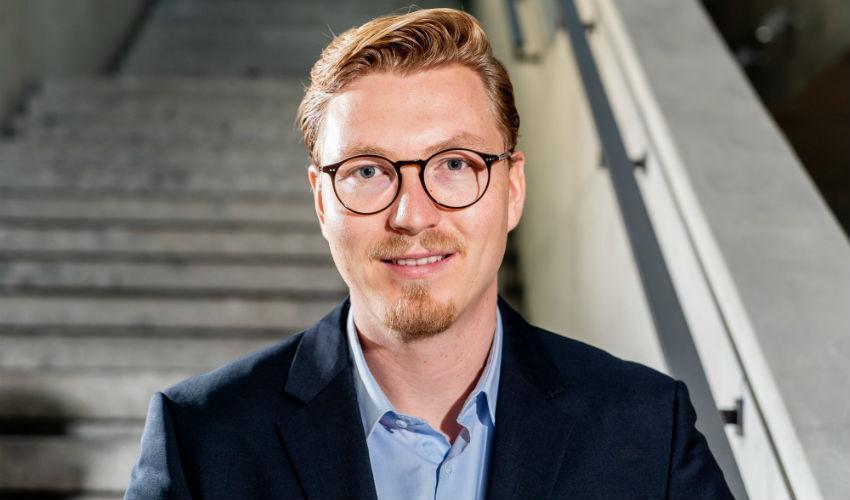
When Finance Meets Economics
THORSTEN MARTIN'S RESEARCH LIES AT THE INTERSECTION OF THE TWO DISCIPLINES. THUS, HE APPRECIATES THE PHYSICAL PROXIMITY OF THE TWO DEPARTMENTS AT BOCCONIBy the middle of the 2000s, the German unemployment rate was well over 11%. A high school student in Dinslaken took notice and begun to wonder how the economy works. He ended up being fascinated by Finance. «A few years later, the financial crisis strengthened my interest and helped me realize that I wanted to become an academic. The system seemed flawed and I wanted to understand how to fix it». Twelve years later, that student is an Assistant Professor at Bocconi’s Department of Finance, after having obtained his PhD at HEC Paris.
Thorsten Martin studied Business and Economics at the University of Cologne. «I was fascinated by how society works at large, how individuals make decisions and how these decisions aggregate up». During his studies, he was an intern at PwC, ThyssenKrupp Steel, McKinsey & Company. By the time he applied for the latter, he realized he wanted to be an academic. Finance fitted his mindset. It was quantitative, but applicable to important real world problems. And it seemed highly relevant for society. But he went to McKinsey anyway. The few months he stayed at the management consulting firm gave him an inside view on how things work in the private sector.
At some point, during his PhD in Finance, Thorsten Martin realized he was most interested in the interaction between Finance and the real economy. «My research lies at the intersection of corporate finance, industrial organization and labor», he says. In his job market paper, he studied how the introduction of steel futures affected steel producers and their customers. By trading futures, financial players transmit information about the fair price of steel to buyers of steel in the real economy. «Price transparency generated a more competitive market. Producers’ margins decreased and efficient producers gained more market share».
Thorsten Martin also investigated the effect of imposing tariffs on imports. In order to examine the long run effects, he studied the investment decisions of publicly listed U.S. companies that buy those imports, the so-called downstream firms. He found that after a tariff reduction, the downstream firms increase their investments. An increase in investment is accompanied by an increase in aggregate output. «Our findings suggest that even in the absence of retaliation, tariffs imposed to protect workers and firms in the directly affected industry hamper downstream firm’s investment and have a negative effect on long run growth».
In his most recent project, Thorsten Martin studied how a credit guarantee program during the financial crisis in 2009 and 2010 helped small and mid-sized French firms roll-over their short-term debt. The program helped these firms avoid layoffs, with a positive effect on affected workers’ career trajectories.
Thorsten Martin came to Bocconi in September 2018. He praises the Department of Finance and its proximity to the Department of Economics, a physical projection of his intersectional research interests. He also appreciates the Bocconi location. «Being an Assistant Professor, I spend most of my time looking at a computer screen. So, I really enjoy that when I go out to have a coffee I am in the middle of a vibrant city. I like the Milanese way of life». He loves the adventure of living in another European country and learning a new language. «I am taking Italian private lessons once a week». He feels very European, and that is one of the many reasons why he chose Bocconi. «I guess you can call it a home bias».
Find Out More
Thorsten Martin, The Real Effects of Price Transparency: Evidence from Steel Futures, 2018
Thorsten Martin, Clemens A. Otto, The Downstream Impact of Upstream Tariffs: Evidence from Investment Decisions in Supply Chains, 2018
Jean-Noël Barrot, Thorsten Martin, Julien Sauvagnat, Boris Vallée, Employment Effects of Alleviating Financing Frictions: Worker-level Evidence from a Loan Guarantee Program, 2019
by Claudio Todesco
